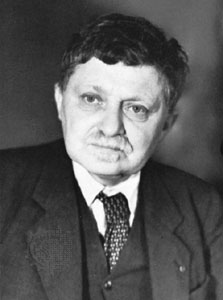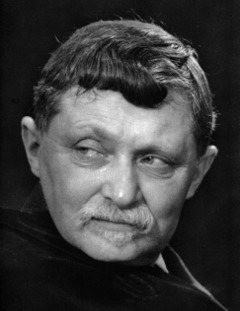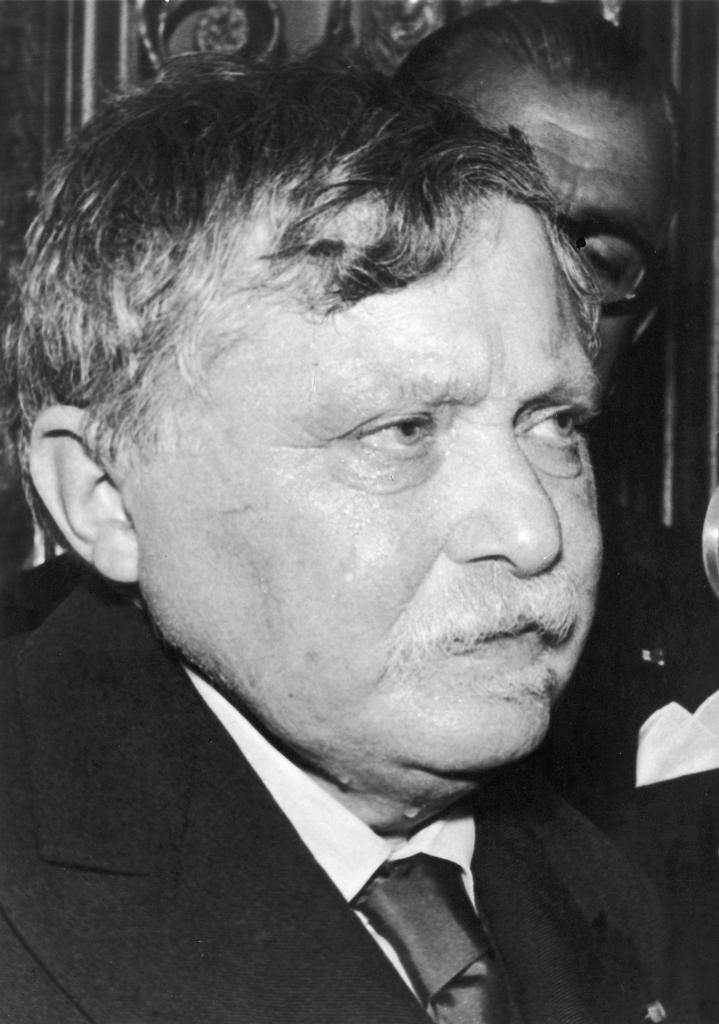<Back to Index>
- Philosopher Gabriel Honoré Marcel, 1889
PAGE SPONSOR



Gabriel Honoré Marcel (7 December 1889 – 8 October 1973) was a French philosopher, a leading Christian existentialist, and author of about 30 plays.
He
focused on the modern individual's struggle in a technologically
dehumanizing society. Though often regarded as the first French
existentialist, he dissociated himself from figures such as Jean - Paul Sartre, preferring the term Philosophy of Existence to define his own thought. The Mystery of Being is a well known two volume work authored by Marcel. In addition to being a playwright and philosopher, Marcel was also a music critic.
Marcel was born and died in Paris. His mother died when he was young and he was brought up by his aunt and father. When he was eight he moved to Stockholm for a year where his father was Minister Plenipotentiary.
Marcel obtained the agrégation in philosophy in 1910, at the unusually young age of 21. During the First World War he worked as head of the Information Service, organized by the Red Cross to convey news of injured soldiers to their families. He taught in secondary schools, was a drama critic for various literary journals, and worked as an editor for Plon, the major French Catholic publisher.
Marcel was the son of an agnostic, and was himself an atheist until his conversion to Catholicism in 1929. Marcel was opposed to anti - Semitism and supported reaching out to non - Catholics.
He is often classified as one of the earliest existentialists, although he dreaded being placed in the same category as Jean - Paul Sartre; Marcel came to prefer the label "neo - Socratic" (possibly because of Søren Kierkegaard, the father of Christian existentialism, who was a neo - Socratic thinker himself). While Marcel recognized that human interaction often involved objective characterization of "the other", he still asserted the possibility of "communion" - a state where both individuals can perceive each other's subjectivity.
In The Existential Background of Human Dignity, Marcel refers to a play he had written in 1913 entitled Le Palais de Sable, in order to provide an example of a person who was unable to treat others as subjects.
Roger Moirans, the central character of the play, is a politician, a conservative who is dedicated to defending the rights of Catholicism against free thought. He has set himself up as the champion of traditional monarchy and has just achieved a great success in the city council where he has attacked the secularism of public schools. It is natural enough that he should be opposed to the divorce of his daughter Therese, who wants to leave her unfaithful husband and start her life afresh. In this instance he proves himself virtually heartless; all his tenderness goes out to his second daughter, Clarisse, whom he takes to be spiritually very much like himself. But now Clarisse tells him that she has decided to take the veil and become a Carmelite. Moirans is horrified by the idea that this creature, so lovely, so intelligent, and so full of life, might go and bury herself in a convent and he decides to do his utmost to make her give up her intention... Clarisse is deeply shocked; her father now appears to her as an impostor, virtually as a deliberate fraud...
In this case, Moirans is unable to treat either of his daughters as a subject, instead rejecting both because each does not conform to her objectified image in his mind. Marcel notes that such objectification "does no less than denude its object of the one thing which he has which is of value, and so it degrades him effectively."
Another related major thread in Marcel was the struggle to protect one's subjectivity from annihilation by modern materialism and a technologically driven society. Marcel argued that scientific egoism replaces the "mystery" of being with a false scenario of human life composed of technical "problems" and "solutions". For Marcel, the human subject cannot exist in the technological world, instead being replaced by a human object. As he points out in Man Against Mass Society and other works, technology has a privileged authority with which it persuades the subject to accept his place as "he" in the internal dialogue of science; and as a result, man is convinced by science to rejoice in his own annihilation.
For many years, Marcel hosted a weekly philosophy discussion group through which he met and influenced important younger French philosophers like Jean Wahl, Paul Ricoeur, Emmanuel Levinas, and Jean - Paul Sartre. Marcel was puzzled and disappointed that his reputation was almost entirely based on his philosophical treatises and not on his plays, which he wrote in the hope of appealing to a wider lay audience.
His major books are Mystery of Being (1951), the Gifford Lectures for 1949 – 50, and Man Against Mass Society (1955). He gave the William James Lectures at Harvard in 1961 – 62, which were subsequently published as The Existential Background of Human Dignity.